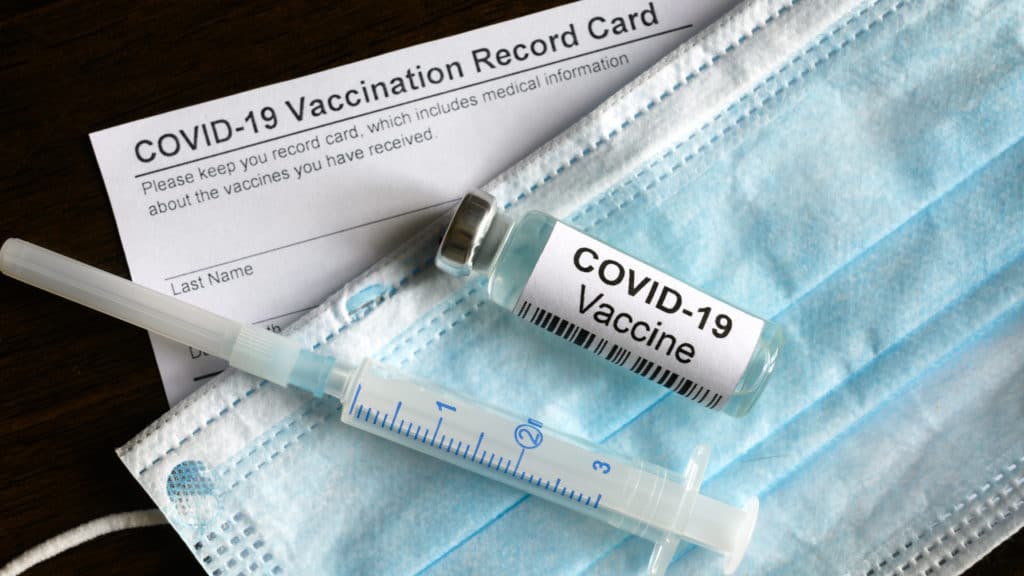LAW REVIEW: Religious Exemptions to Vaccine Mandates

Q: My association mandated that all employees receive the COVID-19 vaccine, but one employee refuses to get vaccinated citing religious reasons. Legally, are we required to exempt the employee from the vaccine requirement?

Alison Giest
It depends. Title VII of the Civil Rights Act of 1964 (“Title VII”) requires employers (with fifteen (15) or more employees) to “reasonably accommodate” employees who notify employers that their “sincerely held religious beliefs” conflict with employment requirements unless reasonable accommodations cause “undue hardship” to the employer’s business and operations. In other words, if the employee has sincere religious beliefs that prevent them from getting a COVID-19 vaccine, and an exemption would not cause the association undue hardship, then, yes, the association needs to grant the employee an exemption from the mandate. Failure to do so could result in a Title VII employment discrimination claim.
Title VII’s definition of “religion” encompasses all aspects of religious observance and practice, including non-traditional religious, ethical and moral beliefs and those that do not conform with an organized religion or may seem illogical and unreasonable to others. That said, political, social, and economic views and personal preferences are not religious beliefs under Title VII.
It is prudent for associations generally to assume that an employee’s asserted religious beliefs are “sincerely held.” If, however, the association has “objective evidence” to doubt the employee’s credibility, it can request limited additional factual information regarding the employee’s sincerely held religious beliefs. For example, an association can question the sincerity of an employee’s religious beliefs if it has evidence of employee acts inconsistent with those beliefs (e.g., receipt of a similar vaccine in the past); the requested accommodation is particularly desirable and likely sought for non-religious reasons; or the timing of the request renders it suspect (e.g., the employee previously requested an exemption for a non-religious reason).
Assuming an employee sincerely holds a religious belief that conflicts with the association’s vaccine mandate, the association must consider all “reasonable accommodations.” Those accommodations might involve requiring the employee to test regularly, wear a mask and socially distance at the office, or work remotely. They also may involve transferring the employee to another position within the association. Associations only need to consider reasonable accommodations that do not cause an “undue hardship,” which Title VII defines as a “minimal cost or burden” to the association. The terminology is comparable to that under the Americans with Disabilities Act (the “ADA”), which requires employers to provide reasonable accommodations to individuals with a disability unless doing so would pose an “undue hardship.” In contrast to Title VII, however, the ADA defines undue hardship as a “significant difficulty or expense.” Under Title VII, then, “undue hardship” places a lesser burden on the association.
Under Title VII, an undue hardship can be monetary and/or non-monetary. Associations should consider various factors to determine if an undue hardship exists, including the risk that an exemption could cause COVID-19 to spread to other employees or members or the public; the nature of the employee’s duties and the workplace (e.g., whether the employee needs to be around other people to perform their job function; whether the job is indoors or outdoors); the cost of the accommodation in relation to the size and operating costs of the association (e.g., whether the association needs to hire more permanent staff); and the cumulative cost of the exemption (e.g., whether multiple employees are in need of a particular accommodation).
Associations need to determine what constitutes a “reasonable accommodation” on a case-by-case basis. In general, the association should have a meaningful dialogue with the employee requesting an exemption to attempt to make a reasonable accommodation. Failure to do so could make it difficult to establish an undue hardship. If multiple potential accommodations exist, the association should take the employee’s preference into consideration. The association is not obligated, however, to provide the accommodation preferred by the employee.
Throughout the process, the association should keep records of its communications with the employee and its decision-making, and it should update the employee on the status of the request. If an association ultimately denies a request or offers an accommodation different from that requested by the employee, it should advise the employee of the rationale for its decision. Finally, associations also must consider the application of state laws—some of which were updated to address COVID-19 vaccines—and how they impact handling requests for religious exemptions.
As with all COVID-19 related matters, requests for religious exemptions from vaccine mandates present new challenges. Through thoughtful assessment of employees’ sincerely held religious beliefs and the potential undue hardship on the association, association executives can successfully navigate those requests.
Tags
Related Articles
BAE Chicagoland Kicks Off: Join the Movement!
Black Association Executives (BAE) is officially in Chicagoland, bringing a bold new community to Black...
25/7/365 Leadership: How to gain an extra hour every day (Without burning out)
Association professionals don’t work in a 9‑to‑5 world, but in a 24/7/365 reality. With high...
The Weight We Carry: What Teams Wish Leaders Understood
Association professionals are feeling the strain of relentless change—burnout, shifting expectations, and emotional fatigue are...




